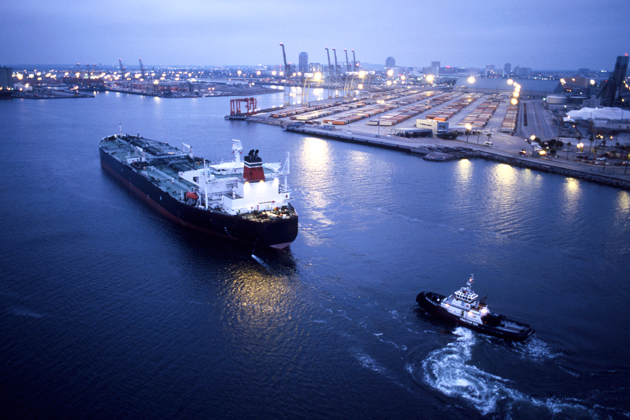- Senate Faults $1.6 Billion Lekki Deep Seaport Project
The Senate has raised concerns on the approvals granted for the construction of the Lekki Deep Seaport without due consideration for intermodal railways services.
The Senate Committee on Marine Transport discovered during the oversight function at ports facilities in Lagos, that the all-important project was approved without train channel, which is key to shipping business.
The committee led by its Chairman, Ahmad Sanni, said the current situation of road gridlock experienced in the Apapa axis might replicate itself at the Lekki Deep Seaport, if necessary consideration was not given to a good road network including rail haulage.
The multi-billion dollar project was approved by the Nigeria Ports Authority (NPA) in 2009, with a Chinese firm Tolaran Group as the promoter. Other partners in the project include the Lagos State Government and NPA.
The Director, Lekki Deep Seaport, John Mastoroudes, said the company has discovered the shortfall in the master plan and is presently ready to inculcate the railway network in the project, if the Federal Government decided to include it in the plan.
Mastoroudes said the company is currently working with Lagos State government to improve the road network linking the seaport, which is located within the Free Trade Zone (FTZ).
“We are very much aware that railway is a good means of transport to shipping business, unfortunately Nigeria has lag behind in railway. The Ministry of Transport and Lagos State Government know much about railway. It is very important and we are making a definite discussion on the railway, although it has not been finalised but it is definitely in our thought,” he said.
The Port Manager, Stephen Herculum, said Lagos State government has promised to construct some roads around the port commencing from 2017. These include the expansion of the Lekki road, construction of Eleko road, a new link road and bridge that will be connecting Lekki expressway to Lagos (Victoria Island).
He stressed that the company is much more interested in the road construction now, but the railway is not in the master plan.“As soon as Nigeria incorporated the railway, we are ready to comply and take it as priority. This will guide against the replication of the traffic congestion that we are seeing in Apapa now” he said.
The project is designed to be a mega seaport with three jetties with a 14 meter draft to be dredged to 19 meters progressively. It has a 300 meter dry bulk facility with capacities to import/export different products including solid minerals and petroleum products.
Construction has commenced and the project is expected to be completed and commissioned by November/December 2019.He said the hydraulic studies (which are in five stages are on going, while mobilisation of plants and equipment have started.


 Forex2 weeks ago
Forex2 weeks ago


 Naira2 weeks ago
Naira2 weeks ago
 Billionaire Watch1 week ago
Billionaire Watch1 week ago




 Naira2 weeks ago
Naira2 weeks ago




 Naira1 week ago
Naira1 week ago




 Naira4 weeks ago
Naira4 weeks ago
 Nigerian Exchange Limited4 weeks ago
Nigerian Exchange Limited4 weeks ago


 Naira3 days ago
Naira3 days ago





















